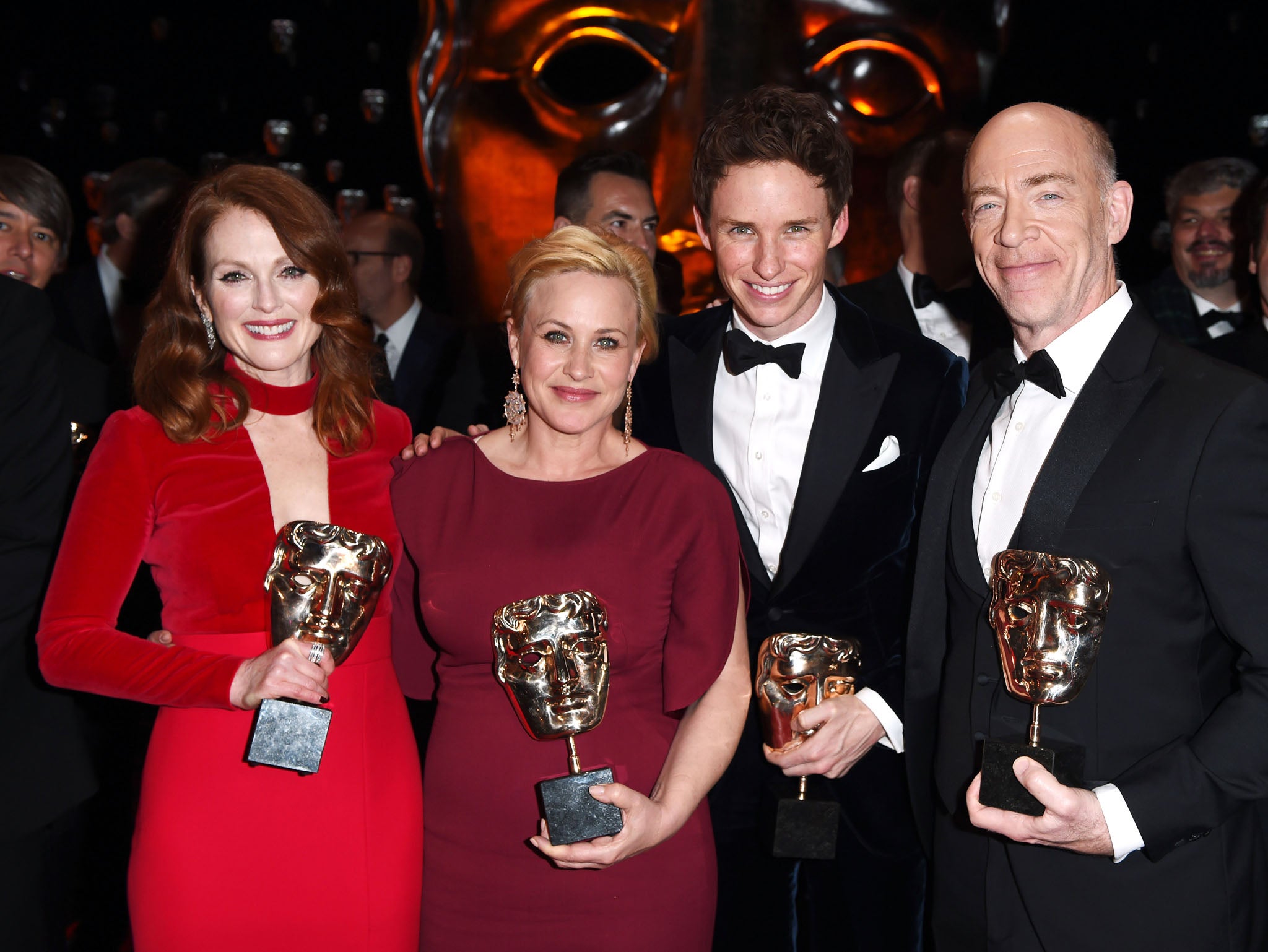Baftas 2015: Britain is diverse, so why is our TV and film so overwhelmingly white?
Looking around the awards ceremony, I could count barely a dozen non-white faces

Your support helps us to tell the story
From reproductive rights to climate change to Big Tech, The Independent is on the ground when the story is developing. Whether it's investigating the financials of Elon Musk's pro-Trump PAC or producing our latest documentary, 'The A Word', which shines a light on the American women fighting for reproductive rights, we know how important it is to parse out the facts from the messaging.
At such a critical moment in US history, we need reporters on the ground. Your donation allows us to keep sending journalists to speak to both sides of the story.
The Independent is trusted by Americans across the entire political spectrum. And unlike many other quality news outlets, we choose not to lock Americans out of our reporting and analysis with paywalls. We believe quality journalism should be available to everyone, paid for by those who can afford it.
Your support makes all the difference.Sitting in the amphitheatre of the Royal Opera House on Sunday evening way above the Bafta awards ceremony, it was difficult not to spot a glaring problem.
Scanning the stalls, where 400 or so of Britain’s brightest and best film and television glitterati were seated, I could count barely a dozen non-white faces.
The rest of the audience wasn’t much more diverse, either. We were an almost entirely Caucasian congregation, purporting to represent the cream of British culture.
Yet Britain is diverse. It doesn’t have one face. It doesn’t have one accent. And it doesn’t have one colour of skin. So a British film without any ethnic diversity can hardly portray the full richness of modern Britain; and a British film industry without black, Asian or minority ethnic actors, designers, directors and cinematographers feels like an insulting throwback to a bygone era.
We were celebrating some wonderful movie-making on Sunday – and last year the best picture award went to 12 Years a Slave – but there was not a single black or ethnic minority winner this year.
Naturally enough, everyone has focused on the fact that David Olewoyo was not nominated for his performance in Selma (apparently because the release date fell too late), but the truth is that Black, Asian, and minority ethnic (BAME) actors face a series of hurdles in this country.
Financial hardship may be a colour blind barrier to getting into the arts (and it was depressing that the working class actor Bob Hoskins was left out of the Bafta commemoration of those who had passed away this year), but the figures speak for themselves.
According to the Taking Part survey, black and minority ethnic participation in the arts lags nearly 10 per cent behind white participation and the gap between black and minority ethnic attendance at heritage sites is even wider at 17 per cent. No wonder just 5 per cent of people employed in the creative industries is BAME – a disturbing under-representation for a community that consists of 12 per cent of the population.
These things are connected. It was only when the National Theatre changed its programming that it started to attract a new BAME audience. So by unintentionally excluding BAME participation – or by being careless about ethnic diversity – the arts loses out on a massive audience.
Things have to change, because the arts should never be the preserve of any one group, because BAME young people have every much of a right to an artistic education as anyone else, because BAME people have just as fascinating and engaging stories as anyone else to tell, because the whole diversity of Britain should be represented on our screens and because the barriers to BAME access to the arts mean valuable British talent goes to waste.
That means change at every level. The decision-makers in the world of British film – the producers, the money guys, the directors and the state-subsidisers – need to allow more than a handful of BAME members into their club.
Commissioners need to search further than the leafy realms of Midsomer and 1950s Oxford and Cambridge for their settings. Every arts organisation that receives public money needs to get serious about ethnic diversity, searching out BAME talent and giving it a chance.
This matters. It is a matter of social equity. People who belong to ethnic minorities in the UK pay their licence fee and their taxes. They too should be able to expect that British films and British television reflect their lives.
But it also matters because it is about how we are seen around the world. We won the Olympics in part because we fielded a diverse team to secure the bid. Our history gives us an enormous cultural advantage, enabling us to reach out to every part of the world, but if our films only reflect one sliver of British life we shall have done ourselves a disservice.
Something I was told eight years ago in a bar in Chicago makes the point. One of the locals got talking with me. What did I think of American music, he asked. I liked it, I said, but pointed out that the music then playing was by Amy Winehouse, who was British. He abruptly told me that I was wrong. His evidence? The video for the song had black men in it. "And everybody knows there are no blacks in Britain."
Join our commenting forum
Join thought-provoking conversations, follow other Independent readers and see their replies
Comments